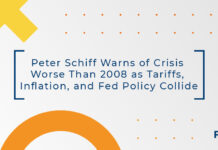Now that the well-anticipated event is over, some industry experts have turned to warning signals for the road ahead.
“We are delighted to witness the historic moment of the launch of Asia’s first Bitcoin spot ETF and the world’s first Ethereum spot ETF,” said Livio Wang, chief operating officer of Hong Kong-based HashKey Group, in a statement. “This will serve as a significant milestone for traditional financial institutions in Hong Kong to enter the market and provide retail users with a more convenient purchasing gateway.”
At the same time, Wang explained that, unlike U.S. spot Bitcoin ETFs, which were approved in January, Hong Kong spot Bitcoin ETFs have several unique features, such as subscription and redemption both via fiat money and via Bitcoin and stablecoins themselves. In addition, Wang spoke highly of Hong Kong regulators approving a spot Ether ETF, which has seen greater regulatory hurdles in the U.S.
Similarly, Patrick Pan, CEO and chairman of OSL Exchange, told Cointelegraph that “the initiation of these ETFs is expected to significantly boost capital inflow into the digital asset market in Hong Kong.” Pan also praised Hong Kong spot ETFs’ ability to allow in-kind settlement, explaining that such a structure will result in “uninterrupted trading flows” and “enhanced market liquidity.”
Crypto exchange eToro is also bullish on the prospects of Hong Kong spot ETFs. “Hong Kong would become the first Asian jurisdiction to have a bitcoin spot ETF, positioning itself as a rising crypto hub in Asia, as well as potentially paving the way for other neighboring countries and jurisdictions to follow suit with their own ETFs,” the exchange wrote in a statement, continuing:
“More potential investors and integrations into the traditional financial system could bode well for the bitcoin price.”
However, eToro also noted after the Hong Kong ETF news, all eyes now rest on Bitcoin’s Halving event. “The question on every Bitcoin investor’s mind now is if we will see the price rally again to fresh all-time highs given the immediate supply shock from the halving, or will the price fall even lower, with the halving becoming a sell-the-news event after all the build-up, similar to the Bitcoin spot ETF approval earlier this year?” the exchange stated.
Others are not as enthusiastic about the prospects of the Hong Kong spot Bitcoin ETF.
“Mainland China investors probably won’t be eligible to buy Hong Kong-listed spot bitcoin and ether ETFs as they are barred from buying virtual assets,” commented Bloomberg ETF analyst Eric Balchunas. Due to such demand constrictions, Balchunas predicts that Hong Kong spot Bitcoin ETFs will only attract “$1 billion within two years,” far less than the approximately $50 billion currently managed by U.S. spot Bitcoin ETFs.
Meanwhile, Markus Thielen, founder of Singaporean blockchain analytics firm 10x Research, said that the firm “sold everything last night,” just one day after Hong Kong spot ETFs were approved. “Our growing concern is that risk assets (stocks and crypto) are teetering on the edge of a significant price correction,” wrote Thielen, adding:
“The primary trigger is the unexpected and persistent inflation. With the bond market now projecting less than three cuts and 10-year Treasury Yields surpassing 4.50%, we may have arrived at a crucial tipping point for risk assets.”
Bitcoin has lost nearly 20% of its value since achieving its all-time high of $73,750 apiece last month. On April 13, the digital asset took a nose-dive due to escalating tensions in the Middle East.
Source: cointelegraph.com




